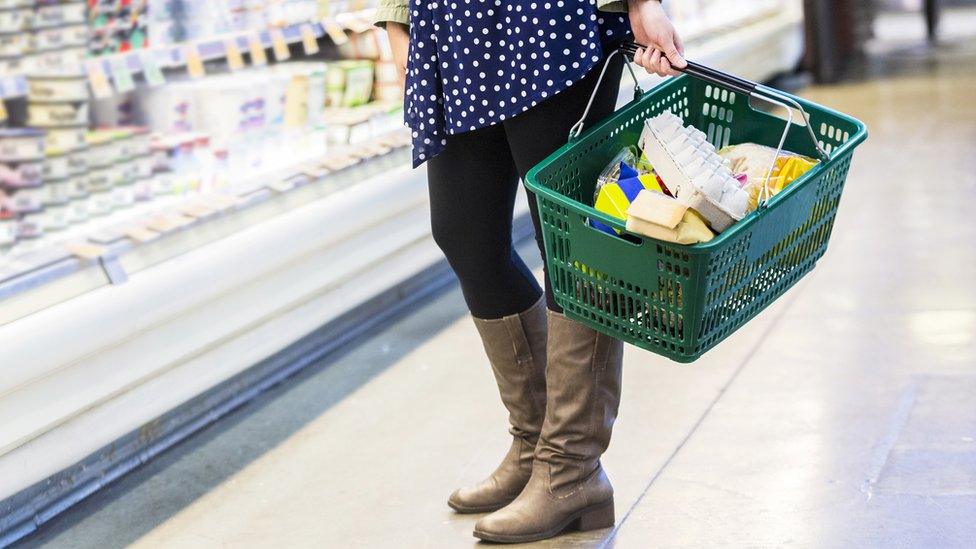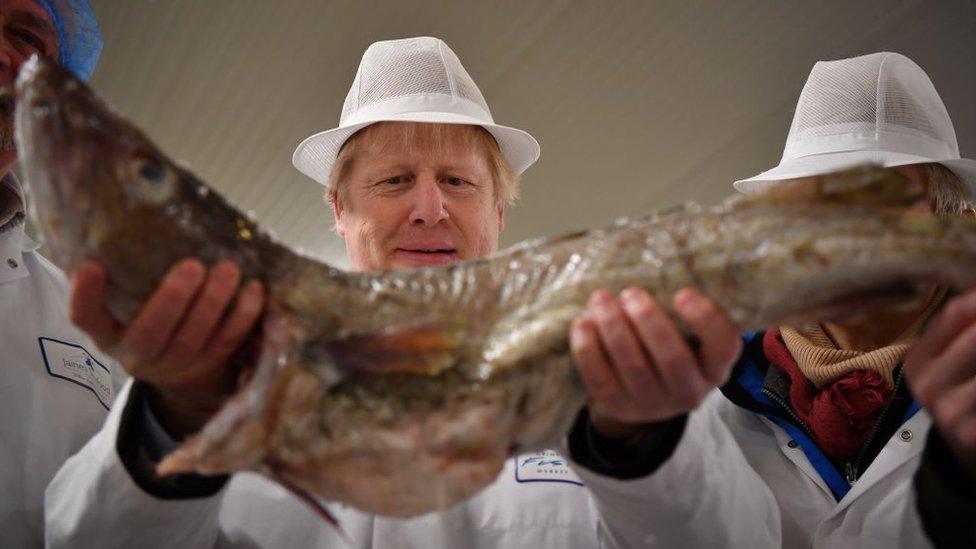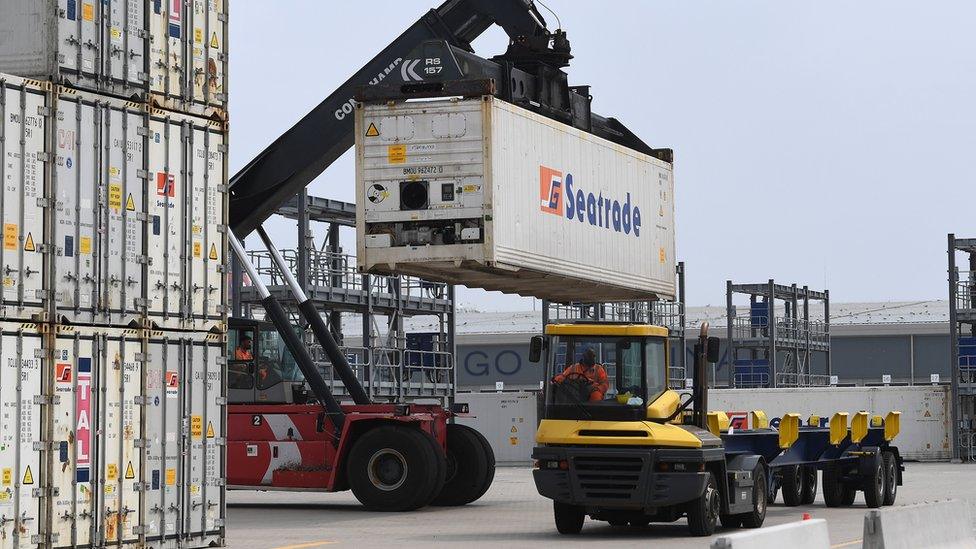Brexit: Cost of everyday goods 'could rise' without a deal, hauliers warn
- Published
- comments

A no-deal Brexit could see import costs for some everyday items rise by almost a third, making them "much more expensive", a business group has said.
The cost of moving goods could also rise due to tariffs, and inflation could be driven up, Logistics UK added.
In a letter to the Sunday Times, external, David Wells, the group's chief executive, urged the PM to work towards a deal.
A government spokesperson said a negotiated outcome by 31 December "remains our preference".
Ministers have warned firms to "get ready" for change at the end of the transition period.
In the letter, Mr Wells said everyday household items imported will get more expensive under World Trade Organisation tariffs - some by 30% or more.
"This will make the household shopping basket much more expensive, particularly in the early part of 2021 when we rely on imports for much of our fresh food," he added.
The head of Logistics UK, previously known as the Freight Transport Association, and which represents hauliers, warned that restrictions to the number of lorry access permits available to enter the EU could put businesses across the country at risk.
"The permit quota available to UK operators will fall short by a factor of four, putting businesses at risk right across the country," he said.
"We are urging government to keep pressing for a deal with Brussels, to protect not only our industry but the economy as a whole."
Negotiations have resumed following a week-long standoff, with the UK side agreeing to continue with talks after EU chief negotiator Michel Barnier said "compromises on both sides" were needed.
At a summit in Brussels earlier this month, EU leaders called on the UK to "make the necessary moves" towards a deal.
Cabinet Office Minister Michael Gove has acknowledged that leaving the EU without a trade deal would cause "some turbulence".
But Mr Wells said that the potential impact on logistics businesses would be "more than 'turbulence'".
'Negotiated outcome'
Responding to the letter, a government spokesperson said: "The prime minister has been clear that a negotiated outcome at the end of the transition period remains our preference."
There will be an "intensification of negotiations", with talks taking place daily, the spokesperson added.
"At the end of the year we will be outside the single market and the customs union and intensive planning is underway to help ensure that businesses are ready to seize the opportunities that it will bring."

IN LOCKDOWN THIS WEEKEND?: Here are the best new TV and streaming shows, reviewed for you
IMMERSE YOURSELF: 90 minutes of sublime music to get lost in today

- Published18 December 2020

- Published21 October 2020
- Published24 September 2020
